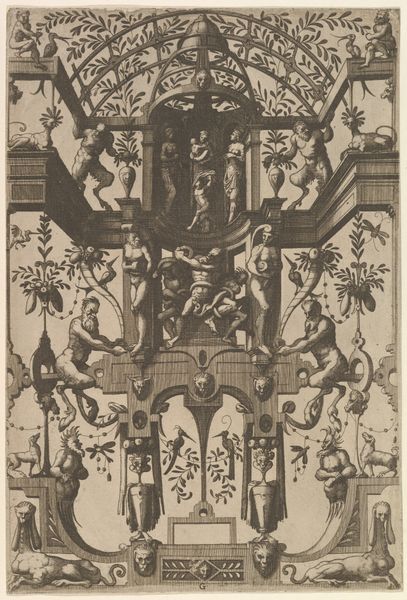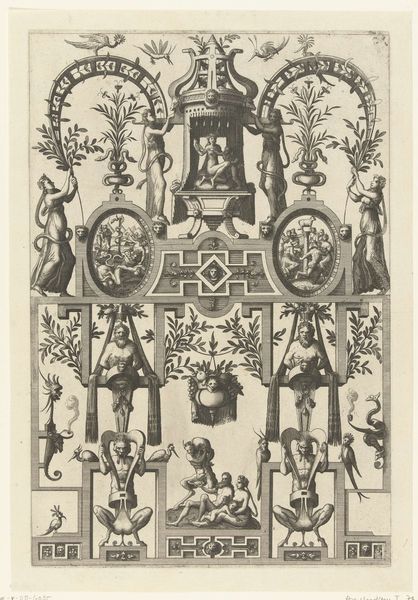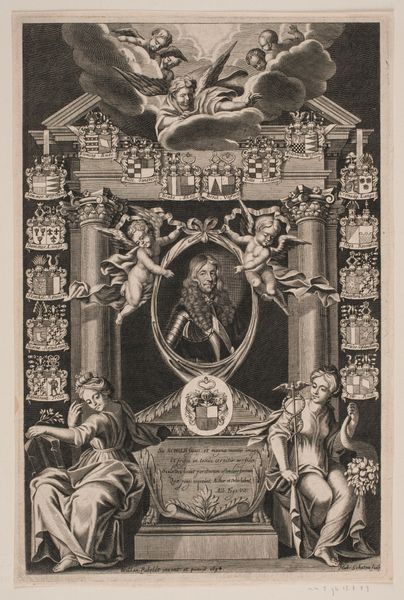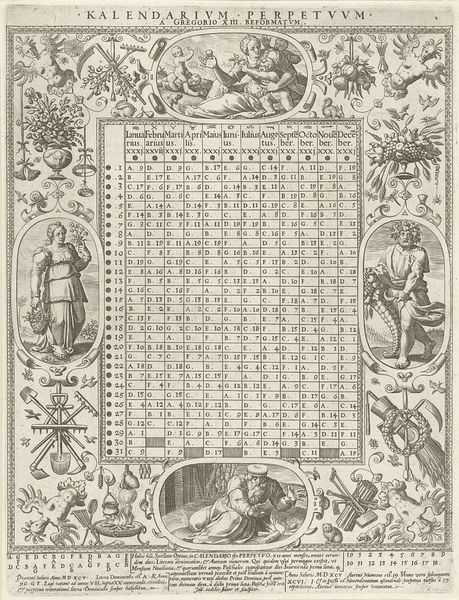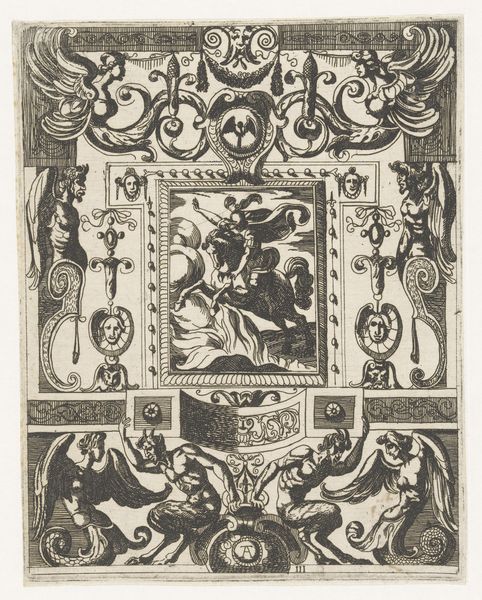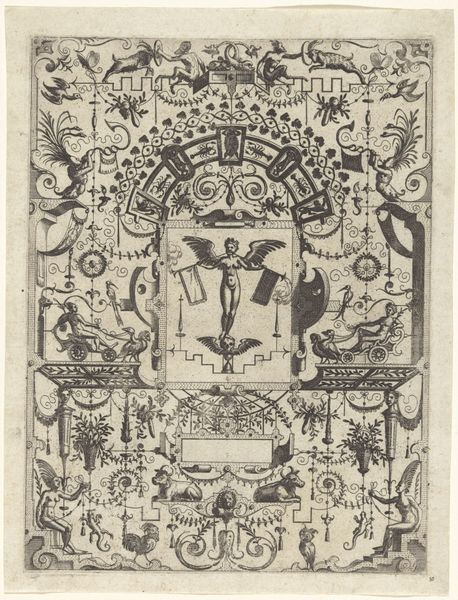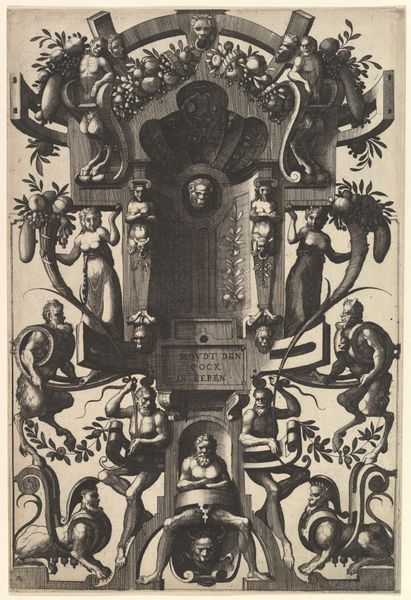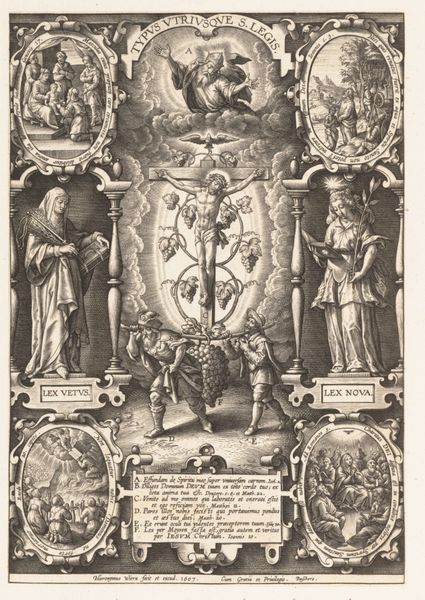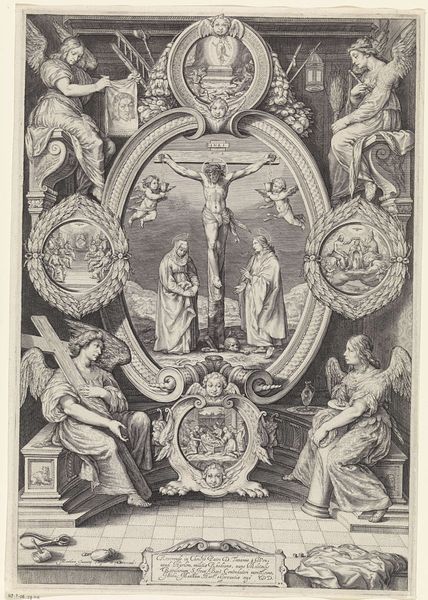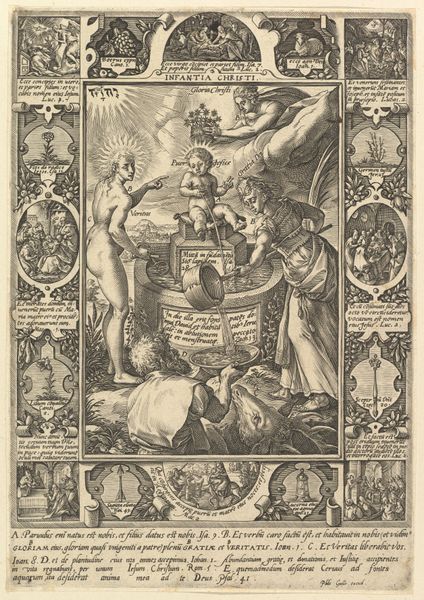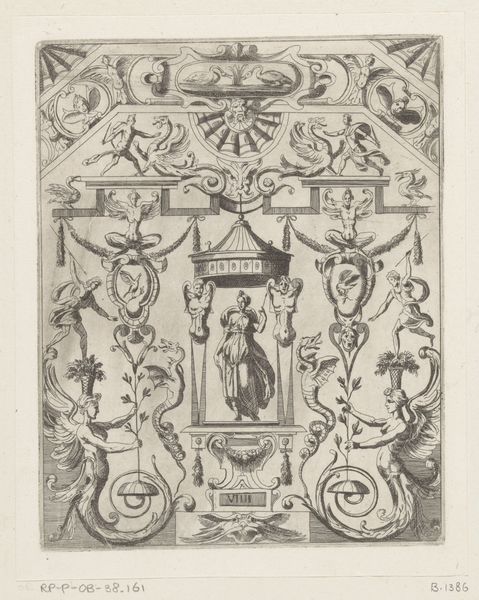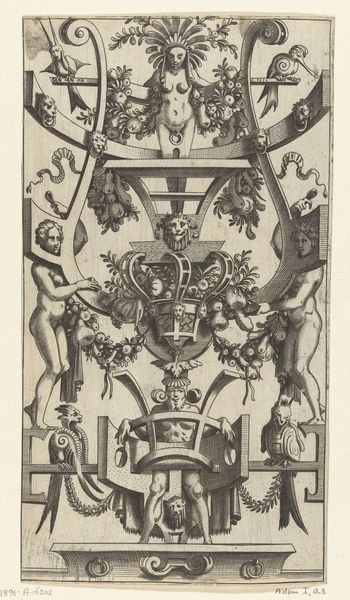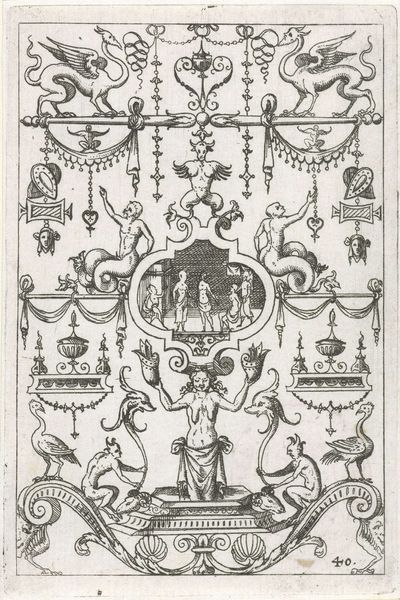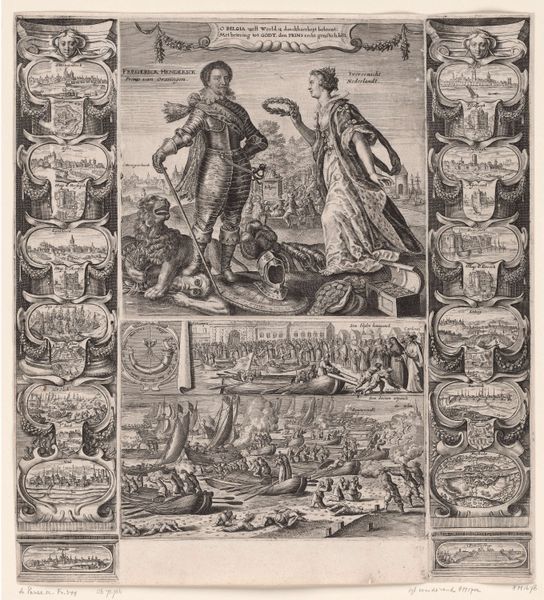
De 64 geslachtswapens van prins Willem III in een allegorische omlijsting, 1672 1672
0:00
0:00
print, engraving
#
allegory
#
baroque
#
dutch-golden-age
# print
#
figuration
#
history-painting
#
engraving
Dimensions: height 508 mm, width 402 mm
Copyright: Rijks Museum: Open Domain
Gerard de Lairesse created this print, "The 64 Coats of Arms of Prince William III in an Allegorical Framing," in 1672. It is a celebration of William of Orange, later William III, amidst a fraught political landscape. Consider the weight of succession, particularly for a young man like William, who carried the expectations of his lineage. These coats of arms are not mere decorations; they represent the complex web of heritage, power, and expectation that defined his identity. The allegorical figures act as witnesses to the intense scrutiny of royal identity, and the pressure to embody an ideal of leadership. It is impossible to ignore the potent symbolism of power and lineage intertwined with gendered expectations of leadership. The image projects an unambiguous claim to power, rooted in the divine right of kings, during a tumultuous period in Dutch history. What does it mean to inherit power? How do we, as viewers, negotiate with such displays of authority, especially when they echo through centuries of social and political change?
Comments
No comments
Be the first to comment and join the conversation on the ultimate creative platform.
